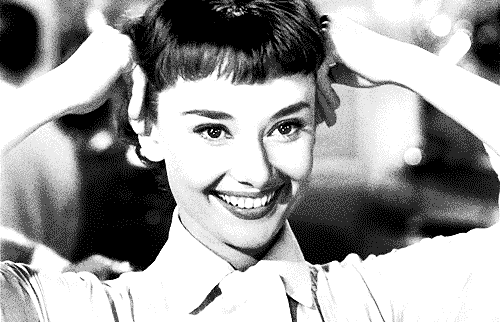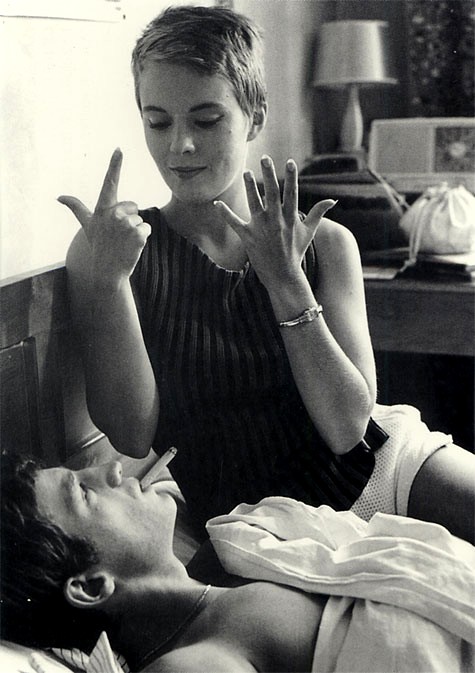
There is the femme fatale.
There is the trophy-wife.
There is the bimbo.
There is the lolita.
And there is the femme-enfant.
Not long ago, as I was having a conversation on women with male friends, one of them cut short and suddenly told me “you know what, very simply, our type of girls is the femme-enfant one”.
It’s funny coz we all understood what this friend meant by “femme-enfant” so I was wondering if it’s because we were all French. An English translation for “femme-enfant” would be “child-woman”. I asked German friends if there was such a word that could translate “femme-enfant” in German. Funny thing, they actually have “men-children” in Germany! But no femme-enfants. Then I asked a Belgian friend who speaks fluently French and Flemish. Interestingly, the word femme-enfant does not translate into Flemish, which led me to the conclusion that maybe, this concept is proper to the French language and maybe to the French culture.
So let me explain what a femme-enfant is, and if there actually is such a thing as femme-enfants in your language and culture, or any other types of complex gender-related stereotypes, please share!
1. A stereotype of a French woman: the “femme-enfant”
A femme-enfant is a type of women.
It’s a stereotype.
I looked up in my favourite French-French dictionary and they explain it like this: “Femme ayant gardé la grâce fraîche et rayonnante de l’enfance.” = woman who kept the refreshing and radiating grace of childhood.
I was reading the interview of a French fashion designer and he was explaining it as the “idea of a woman who never quite left childhood behind”.
A femme-enfant is a real woman. She is a grown up. She is not a lolita, she is not a bimbo. Intelligence, success, self-confidence, style, age do not come into consideration to define a femme-enfant. The fashion designer I talked about earlier says “it could be a 20 year-old girl or a 40 year-old woman (…) my own mom is a little bit like that”. Appearance is somewhat important, but overall, femme-enfant is more a psychological profile that doesn’t necessarily displays beauty, but surely has charm.
Where is this charm coming from? Well, from the fact that the femme-enfant is also a child. She has the charm of the kids: she has a certain purity, an innocence, she is emotional (=she is not very good for self-control), she is spontaneous, joyful, candid, honest, playful, mischievous. Along with it she can be fragile, childish and immature, maybe whimsical, but not necessarily.
2. Famous femme-enfants
 I think the most famous one is Audrey Hepburn. In many of the characters she played she has this spontaneity, she is emotional, true, terribly cute and charming. Have a look at this clip of Roman Holiday!
I think the most famous one is Audrey Hepburn. In many of the characters she played she has this spontaneity, she is emotional, true, terribly cute and charming. Have a look at this clip of Roman Holiday!
She is so cute!
As you noticed, I chose a picture of Kate Moss up there. I don’t know much about Kate Moss’s personality, but I believe that the reason why she is so fascinating lies in this ambiguity between purity and sex-appeal that she displays. Even naked, she is nothing vulgar, she keeps this frank and bright look and her eyes are truly looking at you. She is so fascinating. She makes me think of the girl with the pearl earring and of the main protagonist in The Piano, characters who don’t say much but are so intense.

There is also Jean Seberg:  Jane birkin (here with Serg Gainsbourg, famously ugly but charming French singer form the ~70s)
Jane birkin (here with Serg Gainsbourg, famously ugly but charming French singer form the ~70s)  Charlotte Gainsbourg, her daughter, who is an actress and always plays parts where she is a very honest, natural, super shy and delicate girl. She is not very pretty, but she is known for her charm, and the French love her. She was a child star and there is this famous video of her receiving an award for a movie as a teen. It is possible that her image of femme-enfant comes from the fact that people got to know her as she was a child and did not really part with who she was at the time.
Charlotte Gainsbourg, her daughter, who is an actress and always plays parts where she is a very honest, natural, super shy and delicate girl. She is not very pretty, but she is known for her charm, and the French love her. She was a child star and there is this famous video of her receiving an award for a movie as a teen. It is possible that her image of femme-enfant comes from the fact that people got to know her as she was a child and did not really part with who she was at the time. 
Have you ever watched Korean TV dramas? Being half-Korean, I have watched a couple. Basically, it is always the same plot (a love triangle) including a Cinderella fantasy (poor girl/rich guy but it can be the contrary), with pretty much the same characters all the time. One of the two protagonists is a cold, introvert, unhappy, self-conscious and stoic person, the other is a cheerful, funny, spontaneous cutie who doesn’t care about what people think of them – a femme-enfant.
3. Femme-Enfants in movies
There are many femme-enfants in movies, you can see an extensive list here. The list includes actual kid characters doing adult things, but a femme-enfant is more the contrary. They included Amélie Poulain, which is a cute example of femme-enfant who, like kids, indulges in “little pleasures”.
It is interesting to note that femme-enfant is not a new concept or stereotype that appeared along with the cult of youth characterizing the modern Western mindset. There is a novel written in 1891 which bears the title La Femme-enfant.
I believe that the figure of the femme-enfant is really strong in the French culture, she is refreshing, she is different, and all of them are different. Between childhood and womanhood, between purity/innocence and sex appeal, she is absolutely fascinating.








